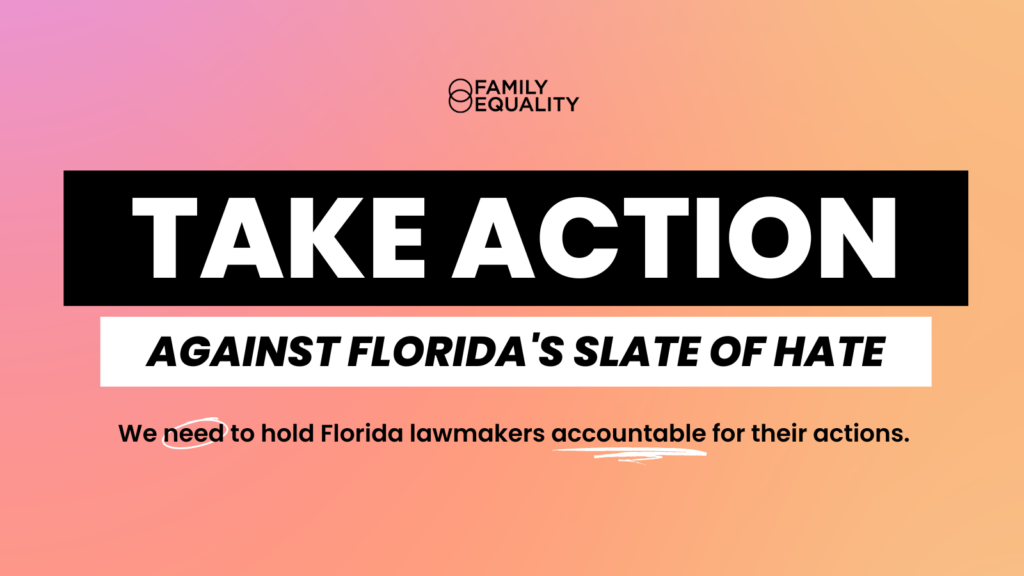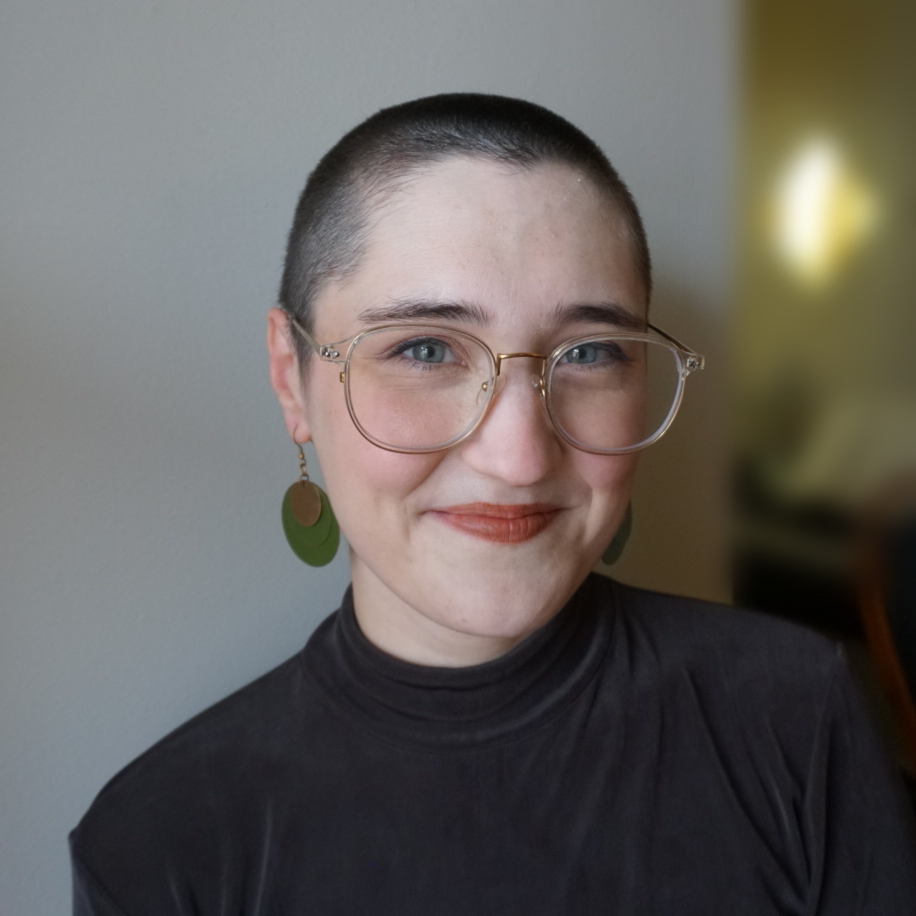April 23 – 29, 2023 is National Library Week. This week carries new meaning amid the hundreds of attacks on LGBTQ+ stories and histories in state legislatures nationwide. In recognition of this week, Family Equality’s Creative Manager, librarian-and-archivist-in-training, Anna Libertin, reflects on the impact of book bans, “Don’t Say Gay and Trans,” and other attempts at erasing LGBTQ+ history.
Not only a right — a life-saver
It started in the stacks of a small public library in Northeast Ohio. There, in the safe and quiet that can only come from being surrounded by stories, I found the words to describe who I was and how I felt. Over the years, diplomas, and miles, those words led me to formal and informal collegiate archives. Shelves stacked with sepia-toned photos and decades-old fliers scattered in student center basements showed me that I wasn’t alone. For centuries, there were people who came before me who loved the way I did and fought to ensure that my future would be brighter than their present. Armed with these ancestors too often forgotten, I felt empowered to do the same.
Throughout my life, libraries and archives have always shown me that I belong — in the past, the present, and the future. With LGBTQ+ youth being more than four times as likely to attempt suicide than their peers, access to these future-bending stories and histories is not just a human right, it’s a life-saver.
Book bans and the impact of “Don’t Say Gay and Trans”
And yet, rather than preserve these life-saving resources, politicians are seeking to erase them. Last year, Florida’s now infamous “Don’t Say Gay and Trans” bill kicked off a wave of similar legislation across the country. And, on the eve of National Library Week, the Florida State Board of Education voted to expand restrictions on discussing sexual orientation and gender identity in grades K-12. We’re already seeing the harmful effects of this law. Hundreds of books by or about LGBTQ+ people have been challenged or banned. And these attempts at silencing our community extends beyond our present stories as the Florida Governor has taken aim at AP African American studies, threatened college majors like gender studies, and targeted the inclusion of queer history and intersectionality in classrooms from Kindergarten to college.
These actions in Florida have ripple effects across the country, from a “Don’t Say Gay, Don’t Mention Race” bill in my home state of Ohio to curricular bans that passed in seven other states. In school libraries alone, there were 2,532 instances of individual books being banned. 41% of these books feature LGBTQ+ themes or characters and 40% feature characters of color. These bans occurred in 32 states and impacted nearly four million students.
Every voice matters
Here’s the good news.
Archives and libraries have so much to teach us, but chief among them is the power of just one person’s story. Amid boxes of receipts, memos, and documents, I’ve seen it myself: Movements are made from calls, letters, emails, and stories from people like you all stacked one on top of another.
So, this National Library Week, let’s get started. Floridians, your lawmakers need to hear that you will not allow them to erase your community’s past, your family’s present, and your children’s future. Together, we can give this story a happy ending.
P.S. Want to get more involved? Our partners at Equality Florida are mobilizing weekly, in-person and virtually, to fight back against the overwhelming anti-LGBTQ+ legislation being introduced in their state. Join them via their Pride at the Capitol Campaign today, and be sure to sign up for their newsletters and follow them on social media to keep up to date with the latest ways you can take action.

Floridians, take action!
From book bans to healthcare bans, we need to take action!
Contact your lawmakers today to show them that Floridians WILL NOT ACCEPT this slate of hate in their state. Then, set a reminder to take action again tomorrow, and the day after that—and encourage your friends to do the same.

Anna Libertin
Creative Manager
Anna Libertin first joined Family Equality in June 2019 as the Communications Manager before serving as the Chief Communications Officer. Now, she works as the organization’s Creative Manager on a part-time basis while she pursues a graduate degree in Library and Information Sciences, with a focus on Archives Management.
